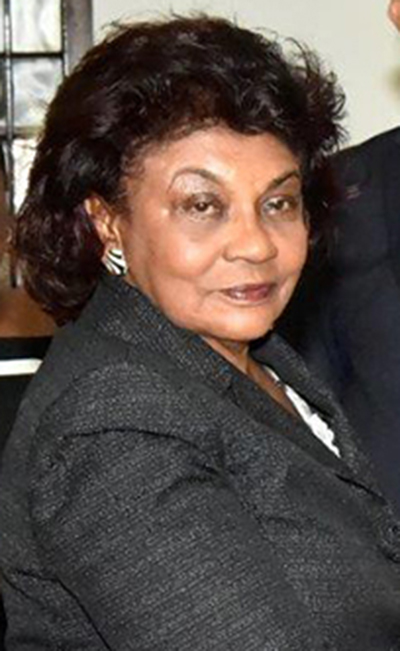Over 25,000 persons could be excluded from the 2020 Official List of Electors (OLE) if they do not uplift their national identification cards, some of which have been sitting uncollected at the Guyana Elections Commission (GECOM) since 2008.
“Their names will be published in the newspapers and they will be given 21 days within which to collect it and if they fail to respond to that then they will be prevented from voting,” opposition-nominated commissioner Sase Gunraj told reporters following yesterday’s statutory GECOM meeting.
Government-nominated commissioner Charles Corbin went on to clarify that while these persons will be removed from the OLE, their names will remain on the National Register of Registrants (NRR).
“It means that if these persons exist they may miss this round of elections because their names will not be extracted for the OLE but they will not be cancelled from the NRR,” he stressed. In addition to widespread publication, GECOM also intends to send notices directly to the addresses of record for such persons.
According to the GECOM commissioners, the decision was made by Chairperson Claudette Singh based on two proposals put forward by government-nominated commissioners two weeks ago. Singh, who has been publicly silent since assuming the post, has also promised to hold a press conference on November 8th.
The government-nominated Com-missioners had proposed that the names of persons who have not collected their cards since the 2008 House-to-House registration exercise (HtH) be removed from the list. The second proposal provided for persons who did not verify their registration during the 2019 HtH to be “highlighted” on the OLE.
This attempt to “highlight” was linked to the Chief Justice’s recent ruling that the now aborted 2019 HtH could not be used as the sole means to remove names from the NRR. According to Corbin, that decision in essence turned the HtH registration process into the HtH verification process.
In a “written decision,” read to the other six members of the Commission, Singh cited the second proposal as unnecessary and denied the request while accepting the first with conditions drawn from the National Registration Act.
Neither commissioner stated which sections of the law will be operationalised by this decision but Section 13. (1), provides that the Commissioner of Registration or any officer duly authorised by him may, by notice, require any person, within such time and in such manner as may be specified in such notice, to furnish such information as may be or become relevant to the registration, or the cancellation or alteration of the registration, of a person under the Act.
Commission Gunraj, in responding to the decision, lamented it as an egregious, unlawful decision which imposes an additional requirement on persons to be allowed to vote. “For that reason and that reason alone, it can be considered unlawful,” he told reporters.
He drew attention to the fact that an ID card is not required to vote and therefore questioned how failure to uplift same can be grounds for removal from the OLE. There is no direct correlation between the right to vote and the possession of an ID card as established by the 1997 Esther Pereira Elections Petition.
Two weeks ago, when the proposal was first tabled, opposition-nominated Commissioner Robeson Benn argued that while some of these persons may be dead some may have migrated and even if they were to travel to Guyana on the day of the elections they have a right to vote.
Removing them from the list, he maintained, was therefore illegal and likely to be the subject of a court challenge.
Gunraj also argued yesterday that while a list of transactions recorded during the 2019 HtH has been published, the public remains unaware of what exactly they should do with that list.
“We raised the issue of the publication of the house-to-house data. The Chairman referred to a decision that she made in September …that it will be published for public scrutiny and she is holding to that decision [however] we are still unaware as to what has to happen with it. We are not sure if the data is there to attract the elements or if people should smile at it,” he told reporters
Corbin, however, was clear that each HtH transaction is to be treated the same as transactions generated during Claims and Objections and therefore will be reflected in the Revised List of Electors (RLE) “It will be as if each of those persons came in to be registered during the Claims and Objections period and the procedure is outlined,” he stressed.
The Claims and Objections exercise, which end on November 11, has been ongoing for nearly a month and has so far seen a total of 17,243 transactions.
GECOM public relations officer Yolanda Ward announced that of that number, the transfer of home address represented the majority of transactions, with 9,516 recorded.
Additionally, there were 3,924 new registrations, 1,672 corrections or changes, 1,627 applications for replacement ID cards and only 32 objections.
The HtH list, which has since Saturday been displayed along with the PLE, is published in two parts: Category A contains those persons between the ages of 14 and 18 who registered during the process, while Category B includes those eligible to vote in 2020.






